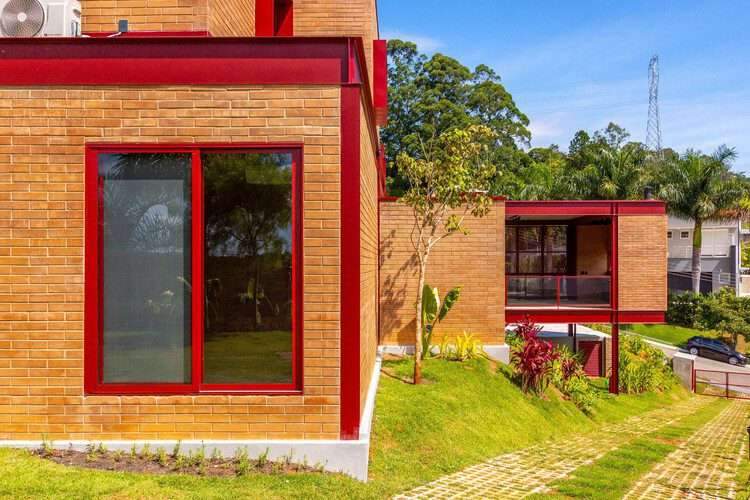parma arquitectura explores benefits of earth-based building
In El Porvenir, in the heart of Valle de Guadalupe, Mexico, ‘Santerra House’ stands as a rammed earth structure combined with burnt wood and concrete. Parma Arquitectura led the design and construction of the residence, opting for earth as the main material in response to the local dry climate. ‘It requires a small amount of water compared to other systems,’ the team explains. Specifically, a large part of it was obtained from the site after several excavations.
Besides a low-water demand, rammed earth also helps regulate humidity and thermal inertia. For that, the studio built 40 cm thick walls in all west-orienting rooms, where the highest sun exposure hits in the afternoon. As an added feature, the house walls’ resulting texture and color gradient blend nicely with the surrounding arid landscape.
all images courtesy of Parma Arquitectura
pairing rammed earth with burnt wood + simple living spaces
In addition to rammed earth, the team at Parma Arquitectura clad part of the ‘Santerra House’ facades in burnt wood using the ‘shou sugi ban’ technique. This gives it greater resistance while creating different shades of black depending on the vantage point and sun direction.
Design-wise, the dwelling features minimal spaces, including an outdoor terrace that serves as an extension of the living room and where meetings, dinners, or family gatherings can be held. Facing south, the terrace is hugged by the building to protect it from strong winds and sits under a wooden pergola to let sun rays filter through in winter while still providing enough shade in summer. Built mainly as a weekend house, the structure also holds shutters and a wrought iron gate that comes in handy when occupants are away.
‘Santerra House’ sits in the town of El Porvenir
burnt-wood creates a rich texture through different shades of black
the outdoor terrace covered by a pergola





